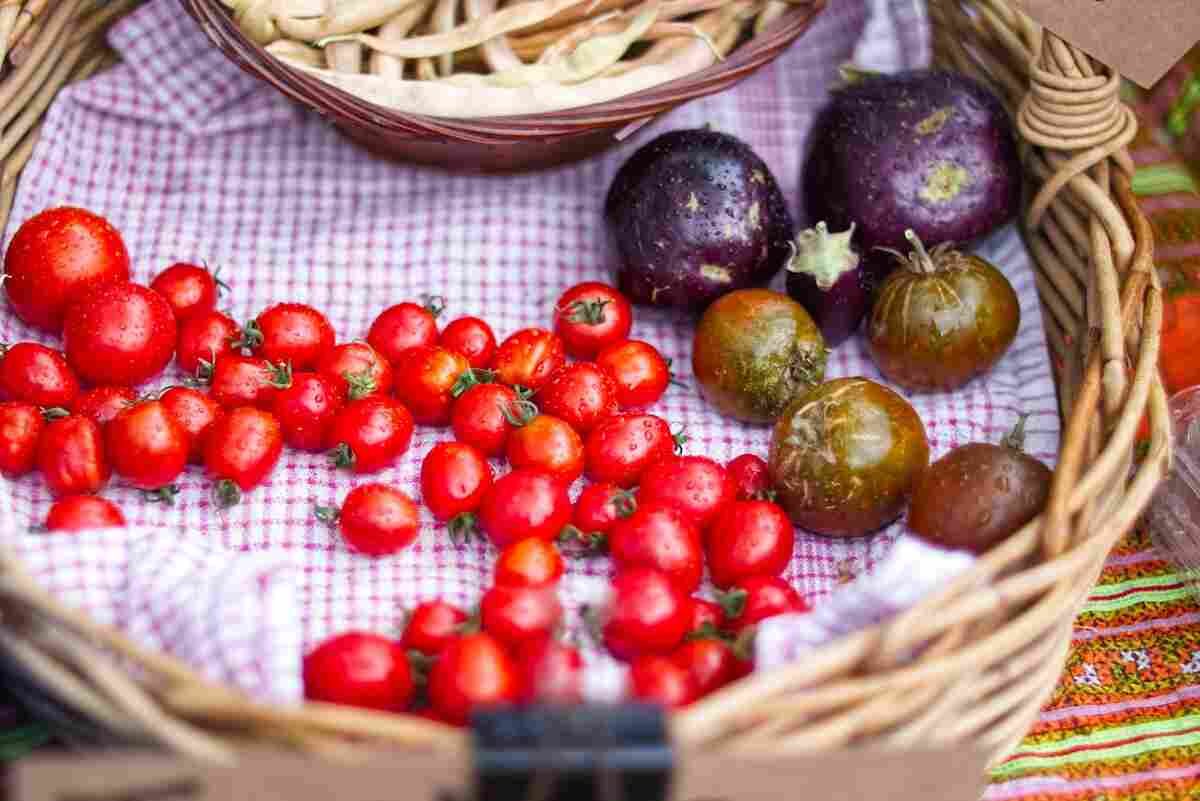Physical Address
304 North Cardinal St.
Dorchester Center, MA 02124
Physical Address
304 North Cardinal St.
Dorchester Center, MA 02124

More gardeners than ever are making the switch to organic methods—and for good reason. Whether you’re growing herbs in your kitchen or managing a large backyard plot, going organic isn’t just a trend—it’s a long-term investment in your health, your soil, and the planet.
In this guide, we explore the 5 outstanding reasons to go fully organic this season, each supported by research, sustainable gardening principles, and expert insights. Organic gardening offers a natural way to grow, enrich, and enjoy your plants—without the risks that come with synthetic chemicals.
Before diving into the benefits, it’s helpful to clarify what “going organic” entails. Organic gardening means eliminating all synthetic chemicals—fertilizers, pesticides, herbicides, and fungicides—and relying on natural methods like composting, mulching, crop rotation, and biological pest control.
Instead of fighting nature, organic gardening works with it. According to the Rodale Institute, organic methods improve biodiversity, regenerate the soil, and reduce carbon emissions—making them an ideal choice for sustainable agriculture.

One of the most compelling reasons to go fully organic this season is the elimination of toxic chemical exposure. Synthetic pesticides and herbicides have been linked to a host of health concerns, from skin irritation to hormone disruption and increased cancer risk, as reported by the Environmental Working Group.
By choosing organic practices, you ensure that your fruits, vegetables, and herbs are grown without harmful residues. This is especially critical when growing food for children, pregnant individuals, or anyone with compromised immunity.
Natural pest control solutions like neem oil, insecticidal soap, or introducing beneficial insects offer safer and effective alternatives—ensuring that what you harvest is both delicious and safe.

Unlike synthetic fertilizers, which offer short-term boosts, organic methods contribute to long-term soil health. Compost, aged manure, and green manure build up soil structure, support beneficial microbial life, and promote healthy root systems.
Healthy soil retains water more effectively, reduces erosion, and supports better plant yields. The USDA Natural Resources Conservation Service emphasizes that soil organic matter is critical to carbon sequestration, nutrient cycling, and ecosystem stability.
Organic gardening encourages living soil, which creates a strong foundation for resilient, vibrant plants year after year.

Going organic also benefits the environment around you—especially critical pollinators like bees and butterflies. Synthetic pesticides (especially neonicotinoids) have been linked to massive declines in bee populations. Without these vital insects, many of our favorite fruits and vegetables wouldn’t exist.
A pollinator-friendly garden includes:
The Xerces Society reports that even small organic gardens help protect pollinator diversity. By going organic, you’re making a stand for local ecosystems and ensuring a future for key species.
Chemical-heavy gardening contributes to water pollution, soil degradation, and greenhouse gas emissions. Excess fertilizers often leach into groundwater or wash into waterways, causing nutrient pollution and harmful algal blooms.
According to the EPA, nutrient runoff is one of the leading causes of water pollution in lakes, rivers, and coastal areas.
Organic gardening, in contrast, emphasizes closed-loop systems: composting waste, reusing garden materials, and conserving water. This reduces your carbon footprint and aligns your garden with broader sustainability goals.
Plus, with natural mulches, drip irrigation, and cover crops, you’ll conserve water and reduce reliance on irrigation systems—critical during periods of drought or heatwaves.
Research has suggested that organic fruits and vegetables may contain higher levels of antioxidants and certain micronutrients compared to conventionally grown produce. While the debate continues, many gardeners swear by the superior taste and texture of organically grown foods.
Without the interference of synthetic fertilizers, plants grow more slowly and develop complex sugars and acids that lead to enhanced flavor. Plus, growing your food organically at home ensures you’re harvesting at peak ripeness—something store-bought produce can’t guarantee.
The British Journal of Nutrition published a meta-analysis showing significantly higher antioxidant levels in organic crops—a boost to both your taste buds and your health.
Organic gardening forces you to observe more closely, work more intentionally, and nurture your garden naturally. You become a part of the ecosystem—learning from every success and setback.
That deeper connection with your garden makes your harvest feel even more rewarding. Watching a seed you composted, sowed, and protected from pests without chemicals flourish into food is deeply satisfying.
Organic gardening also builds community: seed exchanges, compost co-ops, and garden tours often center around sustainability-minded growers eager to share and learn together.
The case for switching to organic gardening is stronger than ever. From reducing your family’s chemical exposure to supporting bees, butterflies, and healthy soil, the benefits are holistic and far-reaching. As we continue to face climate, food safety, and health challenges, organic gardening offers a powerful solution that starts right in your own backyard.
So if you’ve been on the fence about your growing methods, let these 5 outstanding reasons to go fully organic this season be the nudge you need. Your body, your plants, and the planet will thank you.